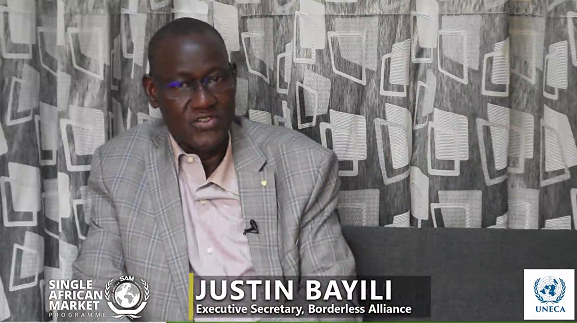If the West African region can trade properly with the rest of the continent, its governments should start working seriously on some technical and tariff barriers to trade on most of the corridors with the region, according trade advocacy organisation Borderless Alliance (BA).
“If it’s not easy to carry goods from Abidjan to Lagos, I don’t know how easy it will be to produce in Ghana or Nigeria and transport to the goods to Eastern or Southern Africa if these tariff and non-tariff barriers do exist in this part of the region,” Justin Bayili, Executive Secretary of the Borderless Alliance, told Single African Market in an interview.
He added: “Definitely we need to work hard to create trust among ourselves so that ECOWAS protocols are duly implemented by member states and also try to improve our production capacity.
According to Mr. Bayili, most African countries are producing only for local consumption and even though we have an open African market for trade, the capacity for producing to satisfy the needs of the market is something else.
“Despite these trade barriers, governments will need to work absolutely towards improving and increasing their production capacity in the region,” he noted.
Mr. Bayili said that failure to meet the demands of an opened single African market will tempt people to continue to import from external markets.
In spite of continued advocacy and interventions to sanitise trade corridors across West Africa, the bottlenecks to cross-border trade still exist, a situation that the trade expert attributes to two main reasons.
“Unfortunately, our governments raise money on Custom duties as their main source of revenue and some countries see ETLS as a way to prevent them from mobilizing these resources hence they don’t see the need to comply.
The other issue is the mistrust between member states which is something we need to address by ensuring that what we trade among ourselves are truly locally produced goods that qualify to be admitted under ETLS regulations,” he said.
Also persisting issues include corruption and harassments along transit corridors where uniformed officials prey on the intelligence of traders and drivers to collect money from them.
“These are real problems; once a trader crosses a border, they are demanded to pay some money just to get their passport stamped, but they won’t issue receipt because they are illegal charges,” the trade expert narrated.
